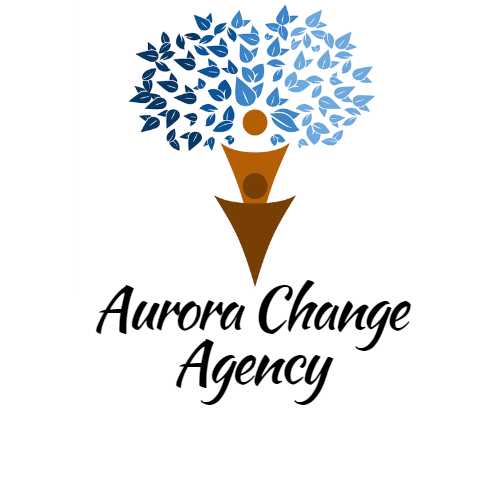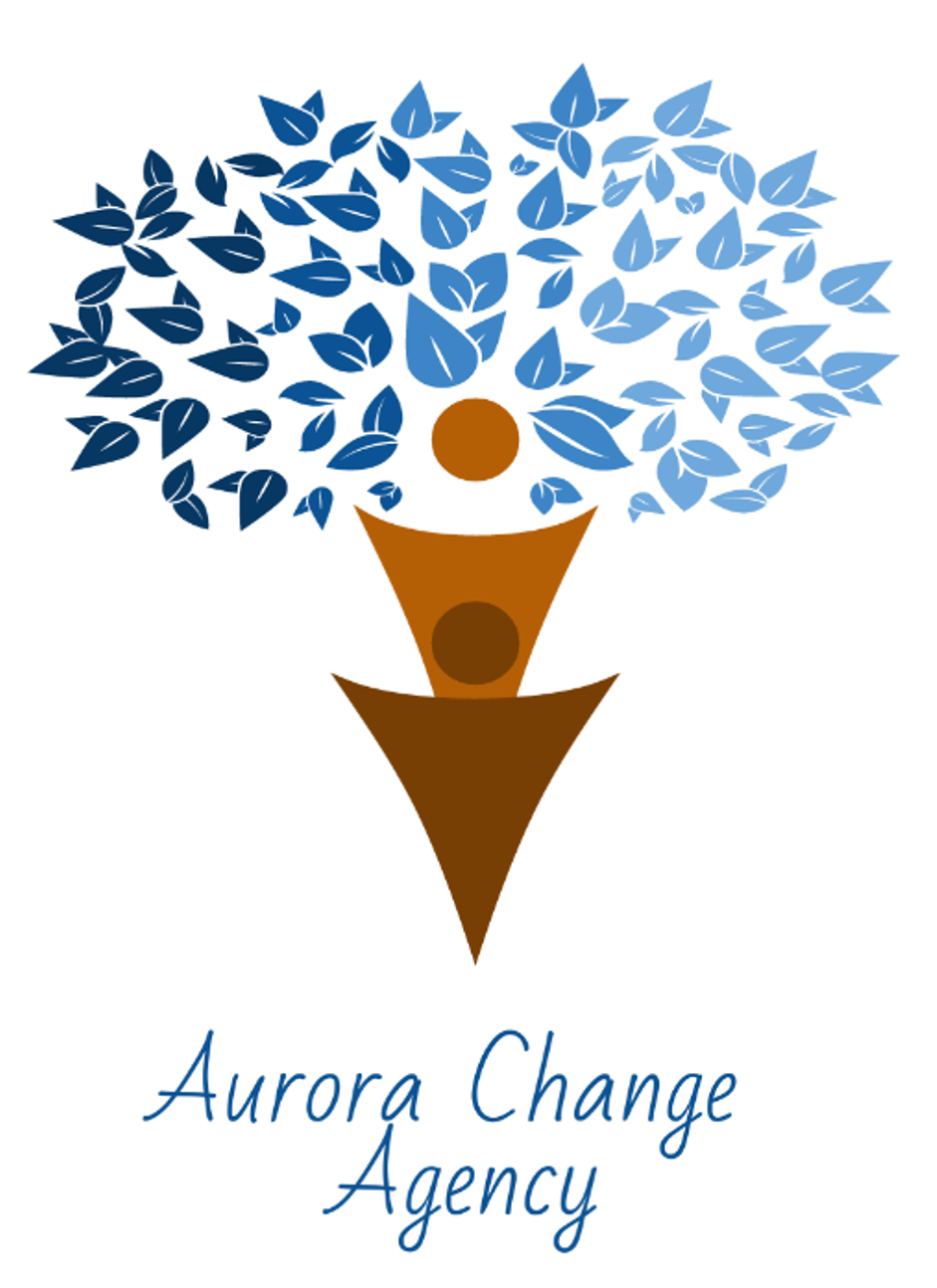Authenticity and Humanity
Recently, I expanded my once part-time consulting practice Aurora Change Agency into a full-time venture. I’ve been engaged in diversity, equity, inclusion, and belonging work in some capacity professionally since 1997; one could say it began even before that when I was organizing a walk out for a multicultural curriculum in high school, and marching for a free-standing Black Cultural Center at UNC as an undergrad in the 90s. I’ve often said that my lived experience has uniquely prepared me for this work; my mother was a Caribbean immigrant raised by her Scottish grandmother who devoted her life to the advancement of HBCUs and my father, an accomplished poet who has appeared in multiple anthologies, was the first Black professor at North Carolina State University. I‘m fully aware that I had a relatively more privileged upbringing than most Black folks my age, which at the time I am writing this is 48.
That said, I’m also fully aware that I was the only person in my household growing up who identified with Black American culture; my mother never fully understood Black Americans (and made rather disparaging remarks about “them,” seemingly forgetting I was one of “them”) even though she was married to one. However, my father was so light-skinned I couldn’t pick him out from a crowd when he picked me up from the airport so he had to wear an identifying hat. Having reflected upon his social circles growing up, none of his close friends were Black, at least that I had ever met. My sister, who looked a lot like my father and was usually presumed biracial, had all white friends because she felt Black people told her she wasn’t Black enough - and married a white man with whom she had two biracial children, one of whom looks eerily like Taylor Swift. Among my family - both on my mother’s side and my father’s - I’m one of two (one Caribbean cousin is the other one) who married and procreated with someone monoracially Black. While I’ve always had a racial assortment of friends, the main ones who have ever seen the “real Shani” are Black women.
All that said, I’ve received messages my entire life that I was “other,” often in situations that I am now aware were grounded in my relative privilege. I was one of the only Black kids in my mostly white pre-school which I attended until second grade (I’m still friends with the other Black kid that I’ve known since I was about 3). Listening to my mother belt out “God Save Our Queen” when I came home from school in the third grade sharing “My Country Tis of Thee,” and she told me I had the words wrong. Being the only Black kid I knew (except the one I’m still friends with) who could identify with the Cosby show because both of my parents were advanced degreed educators and our lived experience was more like them than shows like Good Times, What’s Happening, or any of the other shows they wouldn't let me watch, because they said they were stereotypical depictions of Black people.
Because I wasn’t exposed to any Black people in pre-school, my mom would color the people in my books brown so that I saw representations of myself. She had to constantly remind me that even though my hair didn’t do what the white girls’ hair did, Black hair was still beautiful - she rejected the notion of “good hair” and “bad hair,” reminding me that ALL Black hair was beautiful. She had natural hair - an afro - all of her adult life, though largely because she couldn’t use relaxers because she said they were too harsh for her hair. That said, she had very European perspectives on standards of beauty (which I’m sure she inherited from grandmother) - when I was in college suffering from eating disorders and had gotten down to a size 4 and had a wet and wavy weave, I vividly remember her saying she wished I could stay looking like this forever. Keep in mind, that look was never sustainable because I am naturally a size 14 and my hair never grew past my shoulders - and it certainly wasn’t wet and wavy.
All of these experiences showed me the diaspora of Black folks, and also solidified something my mother said to me that’s never left me: ” the negative stereotypes of Black Americans are exported all over the world” - including to her tiny island country of Saint Vincent and the Grenadines before she came to the US in 1961 and attended Howard University with lots of Black Americans. She exhibited what I have seen Caribbeans, Africans, and other Black folks who aren’t American-born do - remind white folks that they are not “one of them,” lest they be judged through the same pervasive anti-Black lens the rest of us are judged by. This duality has likely strengthened my Blackness being my most primary identity before womanness or anything else - because it’s the one I have been most reminded of my entire life, accompanied by those exported negative stereotypes my mother mentioned.
So, how does this relate to my transition into working for myself full-time? Well, I wanted to escape something I call “psychological Spanx:'' as a diversity, equity, inclusion, and belonging practitioner contorting myself for white folks’ comfort while trying to affect change at the very core of who they are. I’ve often referred to the way I’ve had to ration out my Blackness as a form of cultural double dutch (keeping in mind that I CANNOT double dutch) where I sometimes don’t know whether, when, or how, to jump in between the ropes just at the right time, and then be able to jump over both of them while not getting hit in the face or getting entangled by failure to do either. It’s exhausting, but I’ve found it necessary so as not to personify those exported stereotypes. And, did I mention I can’t double dutch?
Needless to say, I am exhausted from wearing psychological Spanx and trying to double dutch for the last nearly 50 years. In the last year, my mind, body, and spirit told me that I needed to do something different. I always knew that I wanted the autonomy of working for myself and creating a space where I didn’t have to do all of those contortions to receive my paycheck. This work is hard enough, and it’s even harder not to take it personally when you definitely have something to gain - albeit collectively in the full acceptance of Black folks - where we don’t have to contort ourselves on an employer plantation to get our checks to feed our families. And that’s what I’ve come to refer to workplaces, none of which are exempt from the description “employer plantation,” with all the implications that come with it.
I’ve come to the conclusion that I am much more useful - to myself and others - unearthing the ways in which employer plantations force us to experience the same things our ancestors did on actual plantations, just in a different iteration. We still have to “wear the mask that grins and lies,” as the poet Paul Lawrence Dunbar would say. We dare not bring all of our Blackness to work, lest it be deemed “too much,” “unprofessional,” “not a team player,” “aggressive,” or any of the other not-so-dog whistle descriptions resulting from showing up to work authentically Black. This is why I advocate for more HUMANE organizations where we are not bound up by the constrictive nature of psychological Spanx that impairs our ability to breathe freely. I want to create spaces where we actually CAN bring our whole selves to work, but within organizations that are not sanctioning the festering “disease of dis-ease:” those combatting white fragility by embracing cognitive dissonance, cultural humility and self- reflection, and being comfortable with being uncomfortable. Spaces where people can and will ask themselves, why does this iteration of this person’s Blackness make me feel uncomfortable? Why am I preoccupied with finding out what she is doing with her hair? Why am I so surprised that Black person is “articulate?” Why do I get defensive when someone tells me I’ve said something they interpreted as a microaggression?
In order for those organizations to exist, the organizational culture has to embrace authenticity, cognitive dissonance, and discomfort through accompanying values, beliefs, and norms. There has to be both accountability for and openness to dialogue and self-reflection. People have to DO THEIR OWN WORK looking at themselves and exploring their own perspectives. Unfortunately, that doesn’t typically happen on its own - otherwise every organization would be humane and the need to wear psychological Spanx wouldn’t exist. And I for one, particularly as I inch towards 50, refuse to wear the Spanx anymore. You get to the point where you just can’t breathe. Where your body and mind will tell you it’s short on oxygen and you may be dying slowly.
Many of my friends have told me that this work was eventually going to kill me. The emotional and psychological labor of toiling on employer plantation organizations where you’re told to say as the DEI person “we want you to bring your whole self to work,” but where those with positional power have an aversion to discomfort and self-reflection. Quite frankly, it’s often not professionally safe to facilitate substantive change from the inside that requires both persons and systems to do something different. To do their own work. To admit that everyone doesn’t have the same experience. To ask what it is THEY need to do differently, rather than those who invoke the discomfort to show up differently than they are in their own homes or off their computer cameras. That’s why I’ve chosen to do this work from the outside - to protect those who have to toil on those employer plantations and try to facilitate the creation of humane organizations where they can REALLY bring their whole selves to work - and I finally get to be (mostly) myself doing it.
I say mostly, because the same rules apply - I still have to ration out my Blackness so that my message isn’t lost among an imminent sea of fragility. I still can’t start with talking about privilege before introducing cultural humility. I still wear something of a mask, but at least it doesn’t grin or lie. This newfound relative authenticity has allowed a core identity as a truth-teller to emerge within me. One thing you will definitely get from Shani Dellimore Barrax is the truth. You will get a mirror to look at yourself, both personally and organizationally. You will get guided through inclusion to becoming part of a more humane collective. You will be uncomfortable. But with discomfort comes growth. With growth comes change. And with change comes humanity.

